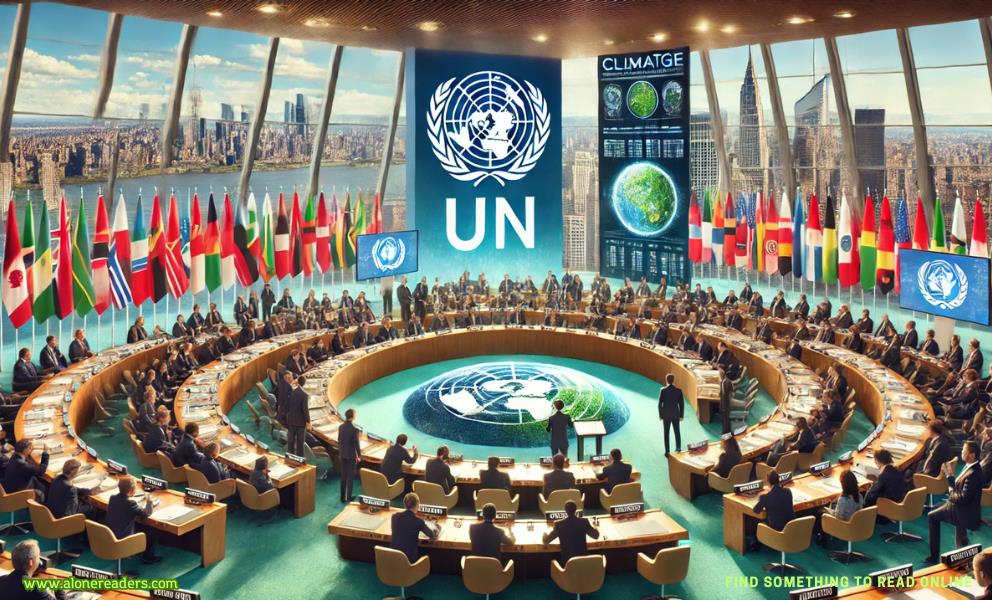
In a historic gathering, world leaders and diplomats from across the globe have convened in New York City for the highly anticipated UN Summit of the Future. This landmark event, taking place at the United Nations Headquarters, aims to address some of the most pressing issues facing humanity today, from the escalating threat of climate change to the ongoing global conflicts that continue to destabilize regions and displace millions.
The Summit, considered one of the most critical gatherings of the year, has drawn attention not only from member states but also from global organizations, activists, and civil society groups. As the world faces a series of interlinked crises, this summit presents a unique opportunity for the international community to come together and formulate multilateral solutions for sustainable development, peace, and security.
One of the foremost topics on the agenda is climate change, which many leaders have identified as the greatest challenge of our time. The effects of global warming, including rising sea levels, extreme weather events, and devastating wildfires, are becoming increasingly difficult to ignore. During the summit, discussions will focus on strengthening commitments to the Paris Agreement, enhancing climate finance, and developing concrete strategies for transitioning to a green economy.
In his opening remarks, UN Secretary-General António Guterres emphasized the urgency of the climate crisis, stating, "The window to prevent irreversible damage to our planet is rapidly closing. We must act decisively and collectively to reduce emissions and protect the most vulnerable." Guterres called on both developed and developing nations to take stronger action, stressing the importance of solidarity in the face of a shared existential threat.
Developing countries, particularly those in the Global South, are expected to push for more equitable climate financing, urging wealthier nations to honor their commitments to providing financial resources to help mitigate the effects of climate change. Island nations and countries most affected by rising sea levels and extreme weather events will demand greater attention to their plight, as they are often the first to feel the devastating consequences of global warming.
While climate change is a dominant issue, the summit is also focusing on conflicts that continue to disrupt global peace and stability. The ongoing wars in Ukraine and parts of the Middle East, as well as tensions between global superpowers, are high on the agenda. World leaders are expected to engage in diplomatic talks aimed at fostering peace and reconciliation in these volatile regions.
One of the key moments of the summit is the anticipated discussion on the conflict in Ukraine, which has dragged on for over a year, leading to widespread devastation and a massive humanitarian crisis. Several European and Western leaders, including U.S. President Joe Biden and European Union representatives, are expected to emphasize the need for continued support for Ukraine while exploring potential pathways to peace.
Additionally, the situation in the Middle East—particularly the tensions between Israel and Lebanon’s Hezbollah—has heightened concerns about the potential for a broader regional conflict. This issue will be addressed as part of the wider discussions on how to resolve long-standing geopolitical disputes that fuel instability and displacement in the region.
The summit also seeks to address newer, more complex challenges, such as the rise of cyber warfare and the impact of technology on global conflicts. With cyberattacks becoming more frequent and sophisticated, world leaders are exploring the development of international norms to regulate the use of cyber capabilities in warfare.
At the heart of the UN Summit of the Future is a renewed commitment to multilateralism. The event serves as a reminder of the importance of collective action and cooperation in addressing issues that transcend national borders. The COVID-19 pandemic, the climate crisis, and global conflicts have highlighted the limitations of unilateral action and underscored the need for a more coordinated, global approach to problem-solving.
The UN's role as a platform for diplomacy and dialogue is more important than ever. Many participants, including heads of state and international organizations, are expected to advocate for reforms within the United Nations system to better equip it to handle 21st-century challenges. These reforms include proposals to strengthen the UN Security Council, enhance peacekeeping operations, and improve mechanisms for responding to humanitarian crises.
Alongside the world’s top political leaders, representatives from civil society and non-governmental organizations are also playing a crucial role in shaping the agenda. Environmental activists, humanitarian groups, and youth leaders have been advocating for stronger commitments on climate action and human rights. Greta Thunberg, the prominent climate activist, is expected to deliver a speech calling for immediate action to address the climate crisis, echoing the sentiments of many young people who feel that their future is at stake.
Civil society groups are also pushing for greater inclusivity in decision-making processes, emphasizing the need for marginalized communities, particularly Indigenous populations and those most affected by climate change and conflict, to have a voice in global discussions. Many of these groups are advocating for an approach to global governance that prioritizes human rights, equity, and justice.
As the UN Summit of the Future continues in New York, the world watches closely to see whether leaders can rise to the challenge of addressing the monumental issues at hand. With climate change threatening the survival of the planet and conflicts continuing to displace millions, the need for multilateral solutions has never been more urgent.
While the summit’s outcomes remain to be seen, the discussions taking place highlight the critical role of the United Nations and other international bodies in shaping the future of global cooperation. The stakes are high, and the decisions made at this summit could have far-reaching implications for future generations. Whether it be through stronger climate commitments or renewed efforts for peace, this moment offers a pivotal opportunity for world leaders to demonstrate their commitment to building a more secure and sustainable world.
As the summit unfolds, the hope is that collective action and shared responsibility will guide the way toward a future where the global community can effectively address these pressing challenges.